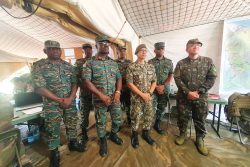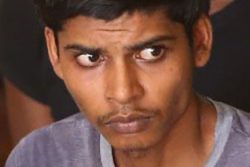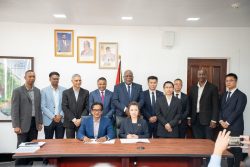While facilitating a necessary changing of the political guards, in terms of creating the level of national cooperation that is required if Guyana is really to take off, the recent elections have not provided the minimum of what was expected.
Our political system remains a majoritarian one and the coalition is in office with the slimmest of majorities and needs to be very careful. Its expectations of wrenching significant ethnic Indian support away from the PPP to provide an opening for it to build an independently genuine movement of national unity did not materialise. This was not totally unexpected, and even if a significant shift of support from the PPP had taken place, the task of establishing a national movement without PPP support would still not have been easy.
 But the elections threw up an African leader, facilitated by the strongest ever African electoral participation, committed to constitutional reform that will ultimately lead to a government of national unity consisting of all the major ethnic groups. At the minimum this should have presented us with a picture of the two leaders (the PPP leader, even if he is somewhat uncertain about constitutional reform but also with his community at his back) linking hands in the interest of the county.
But the elections threw up an African leader, facilitated by the strongest ever African electoral participation, committed to constitutional reform that will ultimately lead to a government of national unity consisting of all the major ethnic groups. At the minimum this should have presented us with a picture of the two leaders (the PPP leader, even if he is somewhat uncertain about constitutional reform but also with his community at his back) linking hands in the interest of the county.
This was not mere optics for such a picture would have immediately played to the real concerns of many of those of Indian ethnicity and thus provided a positive opening. As we have seen during the last elections, an important aspect of PPP propaganda was to present the PNC and its African supporters as largely elections manipulators and power grabbers. This belief permeates the world view of many PPP supporters and upon it rests much of the persistent demand for an apology from the PNC and its various transformations.
The image of a cooperative leadership would have immediately begun to erase this historical view and open the way to real national reconciliation. Instead, the PPP’s position that it was cheated has effectively robbed us of this opportunity and only serves to reinforce a viewpoint that is inimical to national togetherness.
When conditions are so daunting they give rise to many sometimes questionable approaches. Enough has already been said in this column about the negative consequences that followed the perverse and failed effort of the PPP to establish political dominance in order to effectuate its rule after Ms. Janet Jagan was removed from the presidency.
But the results of the last elections such as it is have brought to the fore a few other suggestions of the way forward.
Firstly, there are the many who bemoan the fact of ethnic voting and are very skeptical that the vaunted national unity can be built and politics be anything but muddling through until the day has arrived when ethnic political allegiances have significantly eased.
Contrary to this view which more or less leaves the populace at the whims of politicians, I believe that the way forward is for more of us to stop focusing on finding ways to stop people from voting for their ethnic group and start trying to frame a democratic political system that will prevent ethnic voting from disrupting the way we live.
Though desirable, our release from ethnic voting must be viewed as a long term project that will gradually be derived from our living and working together in peace, harmony, equity and increasing prosperity. Indeed, the existence of such concrete conditions is a sine qua non for the various messages that speak to ‘objective’ political participation to take hold and become universal.
But the long term nature of such a venture should not bother us too much, for ethnic alliance and voting are not incompatible with modernity and the good life. Ethnic political participation complicates political arrangements, but as can be seen from examples elsewhere – Belgium, Switzerland, Malaysia, etc. – its substantial diminution is not a necessity for sensible living and development.
The real problem in Guyana is that all efforts so far to deal with the ethnic problem have been veiled exercises in folly and we have not yet been able to establish political arrangements that will properly curtail the possible negative implications of ethnic political participation on our scale. More than most, Cheddi Jagan understood the need to unite the nation. He lost his first government largely because he placed his ideology ahead of nation building and was kept in the political wilderness for three decades. His return to government was also plagued by ethnic-type disturbances of various sorts. In my opinion, he had both genuine and political interests in solving the problem, but his methods in attempting to do so, though tempting to the less discerning, was utopian to say the least. As an example, he attempted to circumvent the ethnic African/PNC political elite and formed many community groups with broad ethnic membership, in the hope of winning cross-ethnic support.
President Desmond Hoyte stopped the ‘banning’ of sought after consumer goods, opened the political system including the media, and began economic reforms that led to growth and were bound to benefit the Indian business elite, whom he courted. In order to show that he cared for those of Indian ethnicity, he even succumbed to ethnic self-projection by indicating that others referred to him as Desmond Persaud: all of this to no avail.
Then there is the notion that a PPP in the National Assembly will be big step forward. Like others, I believe that that party should and will take its place in parliament. But this would not in itself ease us of our problems and aid political cooperation. In the current climate, parliamentary participation will do precisely what it did in the past under both PPP and PNC governments. It will provide the PPP/C with an additional forum in which to press its case.
Unless the PPP is brought into a general compromise, parliament being majoritarian, it will allow the coalition to pass most of its controversial legislation without PPP support. This will provide additional grist for the PPP’s propaganda mill without preventing that party from taking such extra-parliamentary action it deems necessary.
I began by noting that the APNU+AFC government needs to be very careful. This is because in my view it would be pure folly and dangerous to the interest of its supporters for it to continue to play majoritarian politics and risk the total loss of its new-found power.
Instead, it should use the opportunity it now has to quickly break the back of political majoritarianism. This is what all the above suggestions and attempts have missed but is precisely what this country needs if it is to progress.
henryjeffrey@yahoo.com









